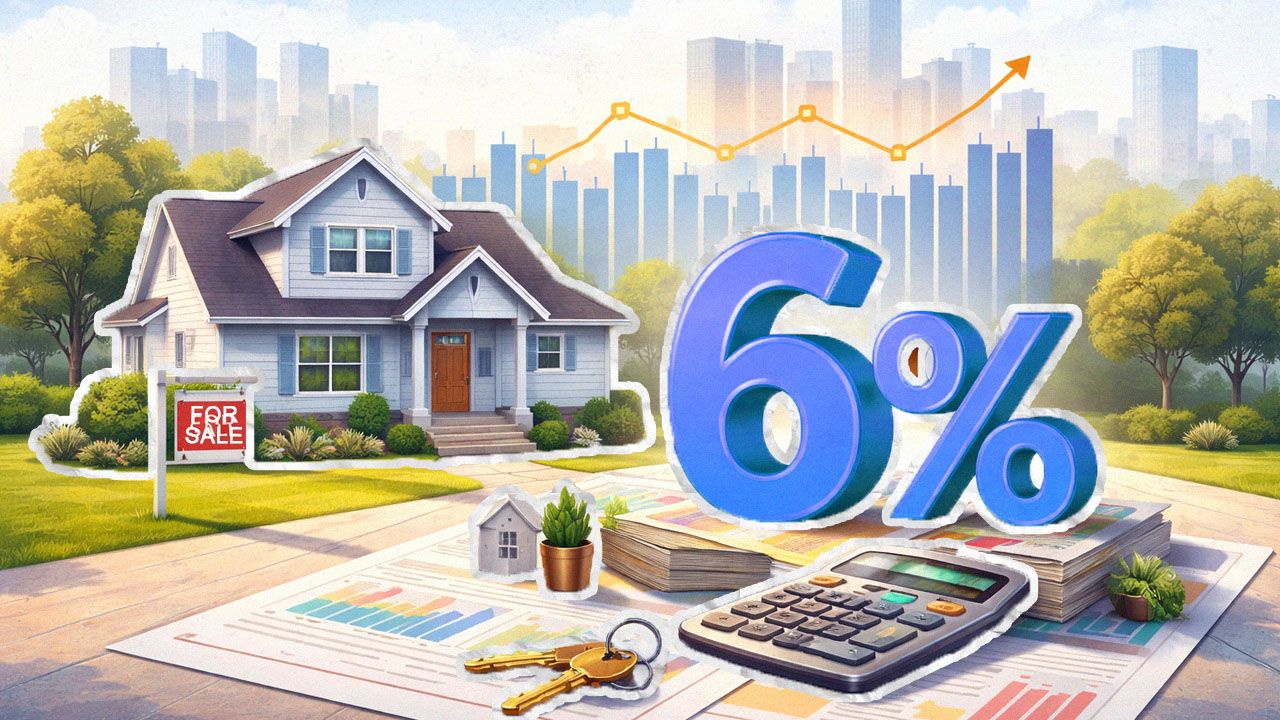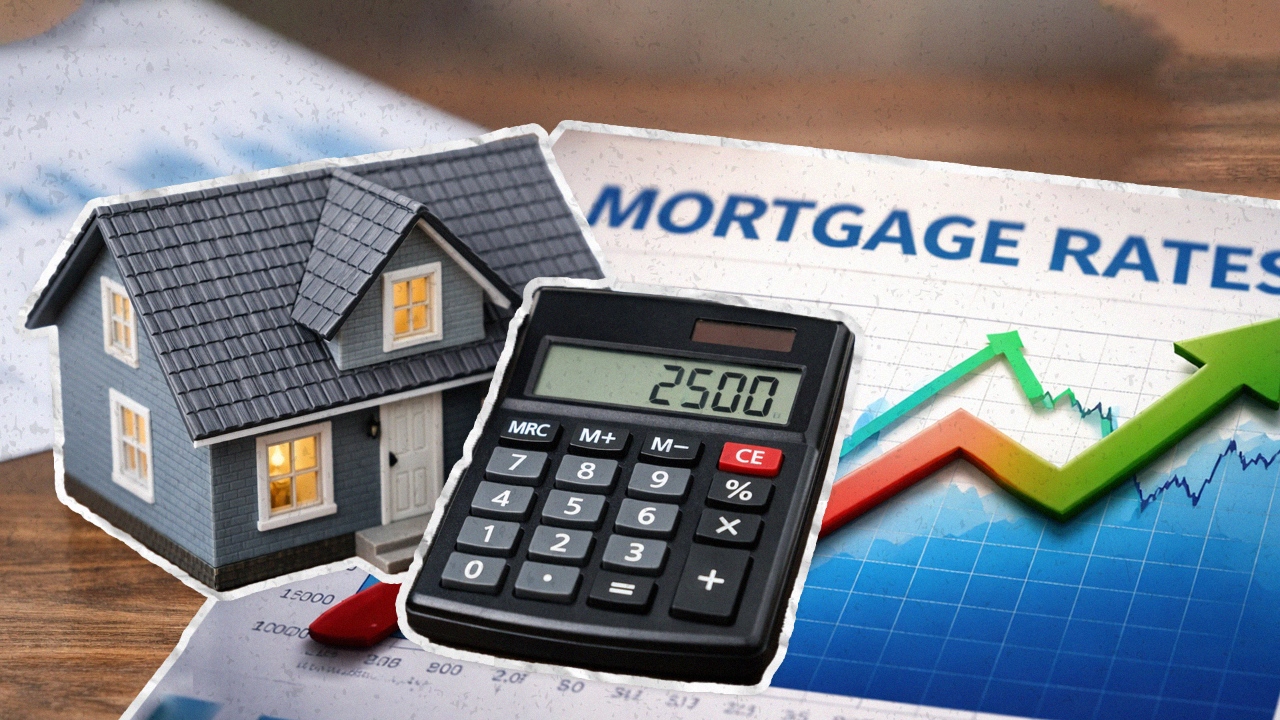Warning Signs: 4 States Where the Housing Market May Crash in 2025
Aug 05, 2025
The U.S. housing market has been through a wild ride over the last few years. After a major boom during the pandemic, things are starting to shift. Rising interest rates, growing inventory, and changes in buyer behavior are cooling things down — especially in certain states.
If you're thinking about buying or selling property soon, it’s important to pay attention to these trends. According to a recent report from AOL, four states are already showing signs of significant home price drops — and the next 12 months could be critical for homeowners, investors, and buyers alike.
Let’s dive into what’s happening in these states, and why it matters.
1. Florida: From Hot Market to Housing Struggles
Florida’s real estate market was red-hot during the pandemic. People from all over the country flocked to the Sunshine State for better weather, tax benefits, and affordable homes — especially when remote work became the norm.
But now, the story is changing.
One of the most impacted areas is Cape Coral-Fort Myers, where home prices have reportedly dropped by over 11% in just the last few years. Many homes are sitting unsold for long periods, which forces sellers to cut their prices. Even more concerning, nearly 8% of homeowners in Cape Coral now owe more on their mortgages than their homes are worth — a situation known as negative equity, which is often a red flag in housing markets.
Other cities experiencing notable declines include Tampa, Jacksonville, Palm Bay, North Port, and Deltona. These were once top relocation destinations, but now buyers seem to be pulling back.
Florida’s condo market is also facing intense pressure — especially in South Florida. After the tragic Surfside condo collapse in 2021, the state passed new safety inspection laws that require costly upgrades and repairs. These new regulations have made it much more expensive to own a condo, and many owners are trying to sell — flooding the market with inventory and dragging prices down even more.
Why This Matters:
-
If you're a seller in Florida, especially in a condo-heavy area, you may face longer listing times and lower offers.
-
If you're a buyer, this could be a window of opportunity — but be cautious about long-term value.
2. Texas: Cooling in Major Cities
Texas has been a magnet for population growth, tech companies, and investors in recent years. Cities like Austin, Dallas, and Houston saw home prices surge during the pandemic as people relocated for jobs and affordability.
But now? Prices are beginning to reverse course.
According to Zillow data referenced in the article, increasing inventory in Texas is contributing to falling prices. More homes on the market mean more competition for sellers — which usually results in lower listing prices and longer days on market.
Austin, in particular, has become a poster child for this reversal. After experiencing some of the biggest price spikes in the country, the city is now seeing one of the sharpest corrections.
Why This Matters:
-
If you bought at the peak, you might see a short-term loss in property value.
-
If you're planning to buy in Texas, it's smart to watch the local market carefully — more deals may appear, but timing will be key.
3. California: A Slow Decline With High Stakes
California is known for high home prices, competitive bidding wars, and booming real estate. But even the Golden State isn’t immune to market changes.
According to Zillow, the average home value in California is currently $786,107, which is down about 0.6% compared to last year. That might not sound like a big drop, but when you're dealing with nearly $800,000 homes, even a 1% decline can equal thousands of dollars in lost value.
More importantly, home sales are down 37% from their pandemic highs. That means far fewer people are buying, and that slow demand could push prices even lower — especially if interest rates remain high or economic uncertainty continues.
Why This Matters:
-
California homeowners may need to adjust their price expectations.
-
For buyers, especially first-timers, there could be more breathing room — though affordability remains a challenge.
4. North Carolina: Not Immune to the Slowdown
North Carolina has been growing rapidly, especially in cities like Charlotte and Raleigh. But even here, the housing market is beginning to cool.
Statewide, home values are down around 0.6% year-over-year. But in some local markets, the drops are more dramatic. In Raleigh, for example, the average home price has fallen by 2.2% in the last 12 months.
Much of this has to do with rising interest rates and increased listings. As more homes hit the market, competition among sellers rises — which forces prices to drop, especially when buyer demand softens.
Why This Matters:
-
For current homeowners in North Carolina, equity growth may slow down or reverse.
-
Buyers who’ve been priced out of the market could find more affordable options, especially in the second half of the year.
So, What Does This Mean for You?
Whether you’re buying or selling, these shifts in the market are worth watching. In many of these states, a few key factors are driving prices lower:
-
High interest rates, which make mortgages more expensive
-
More homes for sale, leading to higher competition
-
Buyers becoming more cautious, especially in high-priced markets
If you're a seller, you may need to be more flexible with pricing, and expect your home to sit on the market longer than it might have last year.
If you're a buyer, this could be your chance to get in — but only if your financial situation is solid. A falling market might lower prices, but it won’t help if you’re not financially ready. Make sure your credit, income, and savings are strong before making a move.
Final Takeaway: The Market Is Shifting — But Not Everywhere
While states like Florida, Texas, California, and North Carolina are cooling off, that doesn’t mean every market in the U.S. is hurting.
In fact, some areas in the Northeast and Midwest are showing stable or even rising home values. That’s why it’s so important to focus on local data, not just national headlines.
Real estate is always local — and by staying informed, you can make smarter decisions about when and where to buy or sell.










